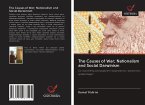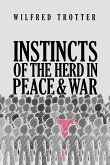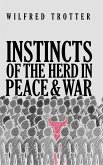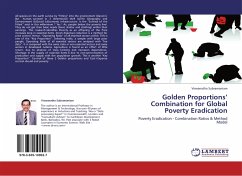There have been hypothesized many causes of war. This book looks at the idea that nationalism and social Darwinism are major influences on the continuation war and conflict in modern societies. The nuclear revolution, the end of the Cold War, the rise of ethno-national conflicts and the spread of global capitalism and democracy have led to considerable speculation about a turning point in the history of warfare. Some foresee an "end of history" and gradual obsolescence of war, or at least of great power war, whereas others see an explosion of low-intensity warfare and "clash of civilizations". Each of these perspectives rests on some critical assumptions and theoretical propositions about the causes of war. My aim in this review is to assess the state of the art in our understanding of the causes of war. Nearly 20 years ago two leading international relations scholars argued, from different perspectives that our systematic knowledge of international conflict had progressed very little since Thucydides wrote his History of the Peloponnesian War.
Bitte wählen Sie Ihr Anliegen aus.
Rechnungen
Retourenschein anfordern
Bestellstatus
Storno








